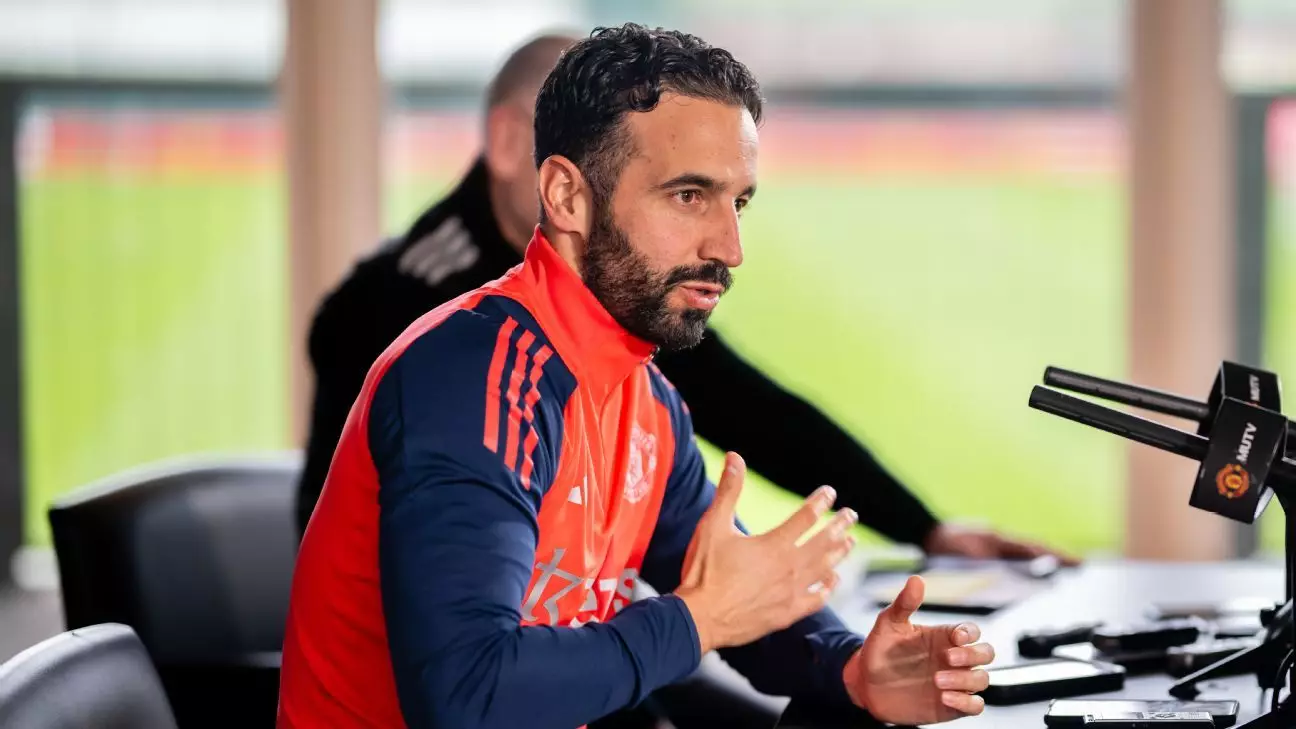The appointment of Rúben Amorim as head coach at Manchester United has generated interest and speculation regarding his influence on the club’s transfer strategy. Unlike the typical managerial role, Amorim’s title seems to position him within a structured hierarchy that includes a sporting director and technical director. This new setup marks a significant shift in how the club approaches talent acquisition and management, opening the door for both collaboration and potential conflicts in authority.
Amorim’s statement regarding transfers indicates a desire for assertiveness in player recruitment. While he acknowledges that he operates within a system led by sporting director Dan Ashworth and technical director Jason Wilcox, he emphasizes the necessity of final approval on player transactions. This raises questions about the balance of power within the club’s new structure. In his commentary, Amorim pointedly mentions that the head coach’s insights are invaluable because he is the one ultimately responsible for the outcomes on the pitch.
He remarked, “I have to have a strong position on that because I am the coach.” This assertion underlines his intent to maintain a significant level of input in recruitment decisions. However, it is also essential to consider how effectively this dialogue translates into actionable results, especially when juxtaposed against the more dominant role his predecessor, Erik ten Hag, seemed to have in transfer dealings.
Amorim’s insistence on enhancing the recruitment process speaks to a larger theme of institutional improvement at Manchester United. By focusing on the “process of recruitment, the data, and the profile of players,” he underscores a data-driven approach in selecting new talent, which aligns with modern football’s trend toward analytical frameworks in decision-making. It remains to be seen how this methodology will interface with the club’s historical tendencies, which sometimes favored big-name signings over strategic fits.
Furthermore, Amorim’s acknowledgment of the need for a cohesive effort in recruitment hints at the importance of collaboration within the club’s broader framework. By advocating for a more integrated approach, he hopes to foster a culture where the coaching staff, analysts, and management work in unison toward a common goal.
Upon stepping into his new managerial role, Amorim had to confront the daunting task of improving a squad that, as he noted, finds itself struggling in the Premier League. Currently sitting in the lower echelons of the league table, the players’ confidence appears to be wavering. He expressed an understanding of the psychological impacts of a string of poor performances, pointing out that “when you don’t win games, you start to be suspicious of the way of playing.”
This psychological aspect of the game cannot be overemphasized. Amorim’s belief that restoring confidence is a gradual process indicates a long-term approach rather than an overnight fix. His focus on bolstering the players’ self-belief is crucial for navigating the ups and downs of a demanding league like the Premier League.
Rúben Amorim’s tenure at Manchester United promises to be a fascinating balancing act between exercising authority over player recruitment and adhering to a structured, collaborative environment. While he acknowledges the vital role of cooperation, his insistence on final say reflects a coach’s innate desire for control and responsibility. The challenge will be navigating this space effectively as he works to rebuild player morale and shape a squad capable of competing at the highest level.
The upcoming period will not only see how Amorim’s strategies unfold but also how he manages the intricate dynamics of collaboration, authority, and player morale within what is arguably one of the most scrutinized managerial roles in football. With the next match against Ipswich Town just around the corner, all eyes will be on how these elements come together on the pitch, potentially redefining United’s trajectory under this new leadership.

